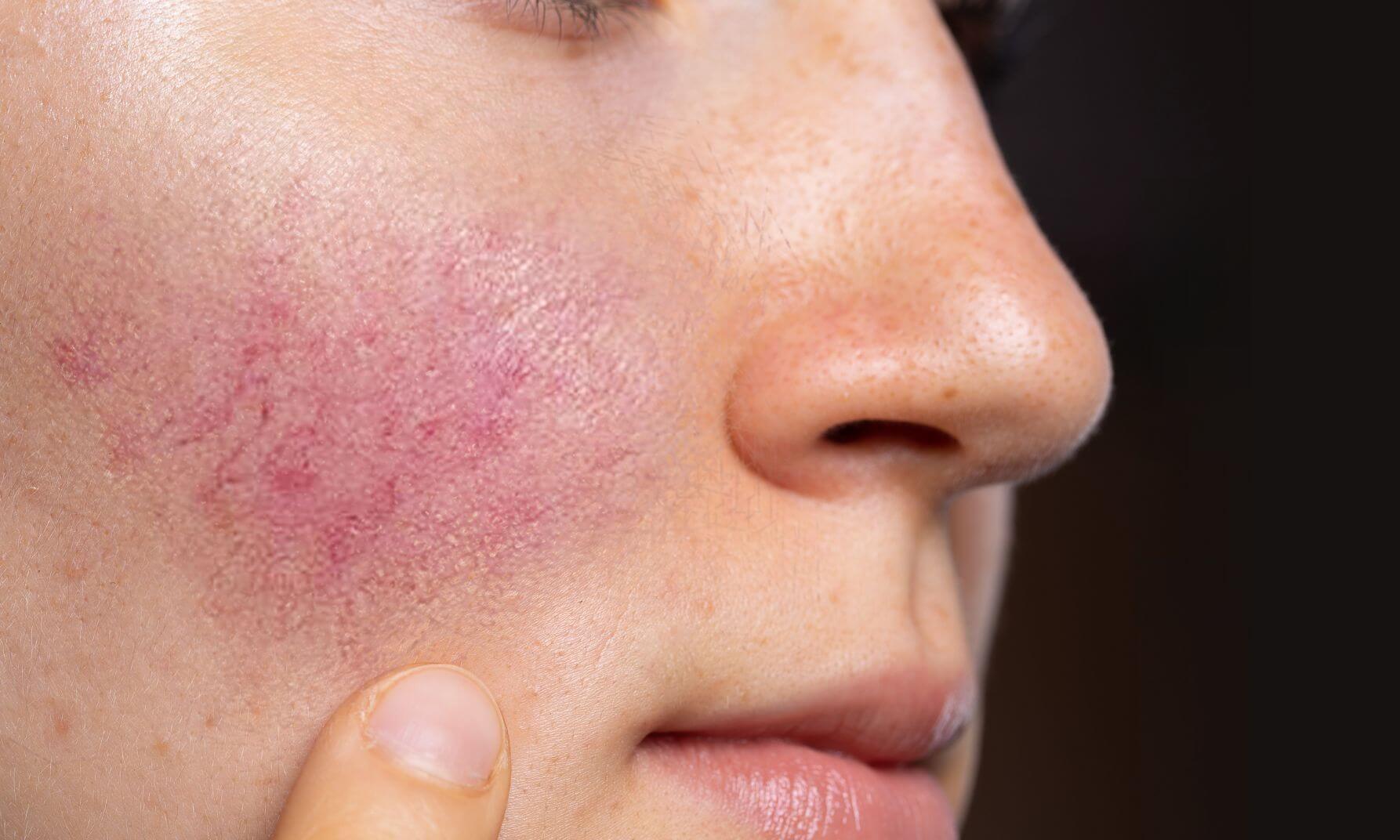As experts in skin aesthetics, we can help with so many skin concerns – and get you looking (and feeling) better than you thought possible. Today, our team here in York is focusing on rosacea. You’ll find out what it is, who’s susceptible to it and how to treat it in our blog post – and be on your way to managing beautifully balanced skin for life.
So, what is rosacea?
It’s a common skin condition that leaves skin looking red and blotchy, and feeling tender and uncomfortable.
What are the symptoms of rosacea?
You might have skin that’s sore or feels like it’s stinging or burning. The redness can come and go, but ultimately, it’s a long-term skin condition and there’s sadly no cure (though treatment helps with symptoms).

Visible blood vessels, redness in the skin, Raised red patches and puss-filled spots
Does rosacea cause spots?
Yes, some people develop red or pink bumps. These are usually quite small. Sometimes, these contain pus. Rosacea should be diagnosed and not be confused with acne. This is because there are certain signs of rosacea that you don’t get with acne, for example, thicker skin (such as on the nose) and crusts around the eyes (called blepharitis).
Who gets rosacea?
Women with light skin are the usual candidates, but it can appear in men and on dark skin. It’s also typically worse in men if it does develop.
What causes this facial redness?
It’s sometimes triggered by foods and drinks, for example, caffeine, alcohol, spicy foods, cheese and hot drinks. Sometimes, exercise can be a trigger.
What about rosacea treatment?
Rosacea treatment at our York clinic could involve:
- Chemical Peels – our AlumierMD skin peels can target oiliness, redness and scarring.
- Microneedling – this procedure boosts skin healing and renewal.
- HydraFacial – this treatment is ideal for cleansing and hydrating the skin at the same time.
- Skincare – Perfect for balancing and refining the pores.
Can the affected area spread?
Not as such. It’s often seen on areas of the face (cheeks, forehead, chin), but may also develop on the neck and chest. In extreme cases, the back, scalp and even the ears can be affected.
How do I know if I have rosacea?
A professional diagnosis is the only way to know for certain. As well as acne, rosacea can also be mistaken for skin conditions such as eczema and seborrheic dermatitis.
How do I book with Blossom?
You can get in touch with our York clinic via our contact page, where we can then book you for a skin consultation to manage your rosacea.






